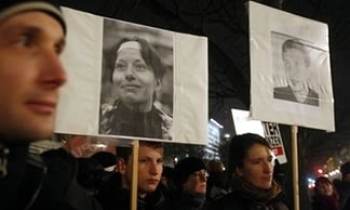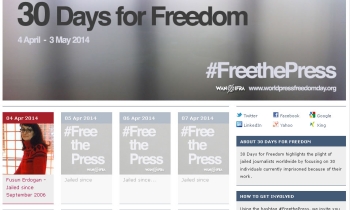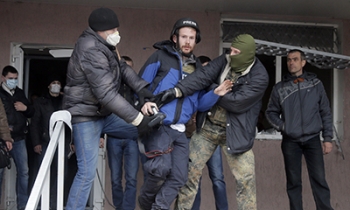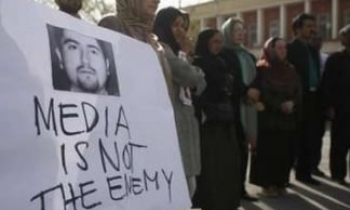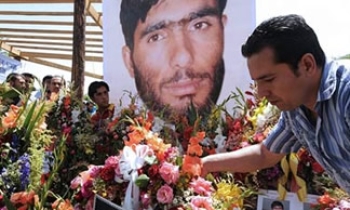The last fortnight has been a mix of good and bad news for journalists in Iran. Maybe, more of the latter.
Abolfazl Abedini Nasr of the weekly Bahar Khozestan was released on February 18, followed by that of Said Matinpour, a contributor to the weekly Yarpagh, eight days later. That's where the good streak ended.
Prison sentences were passed two days ago on journalists Bahaman Ahamadi Amoee and Parnaz Azima; the monthly Asar Panjshanbeh suspension by the Press Surveillance and Authorisation Commission, according to Paris-based Reporters sans Frontières (RSF).
“Good news never comes without bad news in the Middle East’s biggest prison for the press,” RSF reacted. “We can only welcome the release of two journalists but we deplore the fact that excessive amounts of bail had to paid. The Iranian government is unable to take criticism and still sees the right to news and information as a threat to national security. We urge the authorities to withdrew all the charges against these journalists and to rescind Asar Panjshanbeh’s suspension.”
Nasr was freed on February 18 after payment of 50 million toumen (50,000 euros) in bail. He had been held since November 13, 2007 in a prison in Ahvaz (1,200 km south of Tehran, in Khozestan province), where a revolutionary court gave him a one-year sentence on December 24 on charges of “inciting workers to rebellion” and “relations with foreign media” after he covered a workers’ demonstration.
Matinpour was released from Tehran’s Evin prison on February 26 following payment of 500 million toumen (500,000 euros) in bail. He had been arrested at his home in the northwestern city of Zanjan on May 28, 2007 on a charge of “activity against national security.” Both his family and Nasr’s had to borrow heavily or mortgage property to raise the bail money.
On March 1, a Tehran appeal court confirmed a suspended sentence of six months in prison for Amoee, who works for the daily Sarmayeh. The sentence, for which there is two-year period of probation, was passed on September 26, 2007 by a revolutionary court in Tehran for “activity against national security” and “publicity against the Islamic Republic” following his arrest on June 22 while covering a demonstration in the capital. The judge in charge of the case criticised him for signing a petition for the release of Jill Caroll, a US journalist held hostage in Iraq in 2006.
The same day, the same Tehran court passed a one-year prison sentence in absentia on Azima, a journalist with US and Iranian dual nationality who works for Radio Farda, the Persian service of Radio Free Europe/ Radio Liberty (RFE/RL), after finding her guilty of “propaganda against the regime” and “publicity against the interests of the Islamic Republic” Azima’s passport was confiscated when arrived in Iran in January 2007 to visit her family. She was finally able to leave the country on September 18.
In an email statement sent to the Associated Press (AP), the broadcaster said three other charges against Azima had been dropped: acting against Iran's national interests, earning illegitimate income and owning a satellite receiver. "She is guilty of nothing more or less than doing her job as a professional journalist," said Jeffrey Gedmin, RFE/RL president.
The Press Surveillance and Authorisation Commission suspended Asar Panjshanbeh for “publishing articles insulting religions and the Islamic veil” and “attacking Islamic values.”


